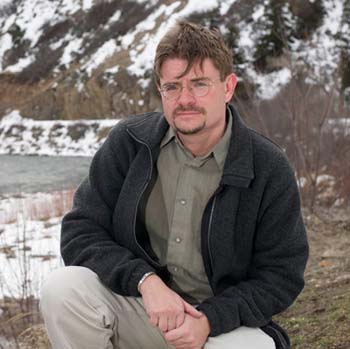 A few years ago, Stewart Udall hiked the Bright Angel Trail with a grandson from the bottom of the Grand Canyon to the South Rim. Not a little feat for an octogenarian.
A few years ago, Stewart Udall hiked the Bright Angel Trail with a grandson from the bottom of the Grand Canyon to the South Rim. Not a little feat for an octogenarian.
He turned away an offer for a mule from the Park Service, says the Los Angeles Times, but he didn’t turn down a martini at the Tovar Lodge.
His family, he said, “wouldn’t have liked it if I hadn’t made it, but what a way to go.”
All of us who enjoy an escape into the wilderness owe Udall a debt of gratitude.
He died earlier this month at his Santa Fe home at the age of 90. The Interior secretary for John Kennedy and Lyndon Johnson, he was a Western political scion and a conservation icon.
“Stewart Udall left an indelible mark on this nation and inspired countless Americans who will continue his fight for clean air, clean water and to maintain our many natural treasures,” President Obama said.
Udall was a member of a family of influential Western Democrats. His brother Morris Udall was a congressman and one-time presidential contender. His son Tom is a New Mexico Senator. His nephew Mark is a Colorado Senator. Roaring Fork Valley locals know better his nephew Randy, of Carbondale, a sustainable energy guru.
Udall was the last surviving member of Kennedy’s original cabinet. His time as Interior secretary saw the creation of the Wilderness Act, a prosaic piece of legislation he helped write.
“Many people at the time thought it was a crazy idea,” he once told the New York Times.
Udall saw the passage of the Wild and Scenic Rivers Act, the creation of the Land and Water Conservation Fund and an expansion of the National Park System that protected some of America’s most treasured landscapes.
Canyonlands in Utah. Redwood National Park and Point Reyes National Park in California. We can thank Udall for those, and for Guadalupe Mountains National Park in Texas, North Cascades in Washington and the Cape Cod National Seashore in Massachusetts.
“My Uncle Stewart was a great public servant, and a wonderful writer and storyteller,” Mark Udall said. “He was passionate about conservation, and he was a champion of Native peoples. All those who care about our national parks and the environment will miss his voice.”
Born in St. Johns, Ariz., to Arizona Supreme Court Justice Levi S. Udall and Luise Lee Udall, he served as a Mormon missionary and as a gunner in Europe in World War II.
He served four terms in Congress, and was considered instrumental in persuading Arizona Democrats to support Kennedy in 1960.
After nine years at the helm of Interior, he remained interested in the environment and Western issues, which he wrote about frequently. He represented American Indian uranium miners who sued the federal government over their exposure to radiation and “downwinders” who sued over their exposure to atomic blasts.
“We are blessed to live in a country where three out of every hundred acres have been preserved, in a natural state for all people for all time,” Udall once wrote about national parks with his nephew Randy. Dwell on that, for it is a miracle of sorts and becoming more so every day.”
They wrote: “By opening our eyes to nature’s beauty, teaching us to see and to savor, parks have made us wealthy in ways that have nothing to do with money. Without parks, we would be lesser people; America, a lesser country.”
It’s fair to say that without Udall overseeing much of America’s public lands during the pivotal 1960s, America would be a lesser country, too.
Interior Secretary Ken Salazar called him “a pioneer and a visionary in protecting America’s natural resources and cultural heritage.”
I had the pleasure of hearing Udall speak four years ago at the Aspen Writers Foundations’ Summer Words celebration. The theme was “Voices of the West: Crossing the Great Divide,” and Udall captured audiences with a rare sense of gravity and a commitment to protecting this Western landscape that lasted throughout his life.
To be sure, he crossed the great political divide. Udall served during “a golden age of policy making,” wrote Keith Schneider, a former national correspondent for the New York Times who became a friend of Udall’s.
“It’s not much of a leap,” Schneider wrote in a remembrance on his blog, modeshift.org, “to note that the work he executed during his life, like the wild ground he preserved in national parks and refuges, will endure for as long as this nation endures.”
What a way to go.

